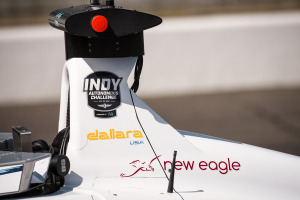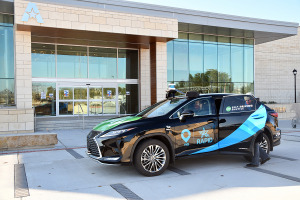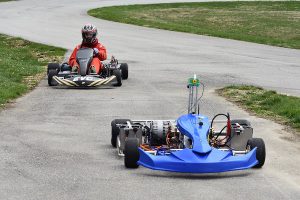
US to loosen rules on Tesla, other carmakers taking on China in race for self-driving cars
The Transportation Department said it will move toward a single set of national rules for the technology to replace a patchwork of state regulations.

The Transportation Department said it will move toward a single set of national rules for the technology to replace a patchwork of state regulations.

Tesla expects the Cybercabs to cost under $30,000, Musk said. He estimated that the vehicles would become available in 2026, then added “before 2027.”
The Indy Autonomous Challenge and its driverless race cars made their first appearance at CES last January.

The IEDC has contributed $3.4 million toward creating the Indy Innovation Challenge, to encompass both the Indy Autonomous Challenge and potential future competitions focused on performance automation technology.

The new facility in the 16 Tech Innovation District, the Emerging Manufacturing Collaboration Center, is part collaboration space, part learning lab and part development and testing center.

Three pilot programs planned for this year are more than just robo-taxi and delivery-bot science experiments. They’re dry runs for the real thing—possibly coming soon.
A six-month public shuttle service will launch in Indianapolis in May and in Fishers in November. The project is backed by the Toyota Mobility Foundation and numerous other public and private partners.

Later this month some of the world’s best open-wheel race car drivers will look to take the checkered flag at the Indianapolis 500 and guzzle a bottle of milk in the winner’s circle. But one of the big winners this may at the famed Indianapolis Motor Speedway won’t be drinking any milk. That’s because it will be an autonomous car.
The companies will collaborate based on GM’s next-generation battery system, both sides said, mainly for the North American market.

Gov. Eric Holcomb will ask lawmakers in 2018 to authorize the testing and operation of autonomous vehicles on Indiana roads.